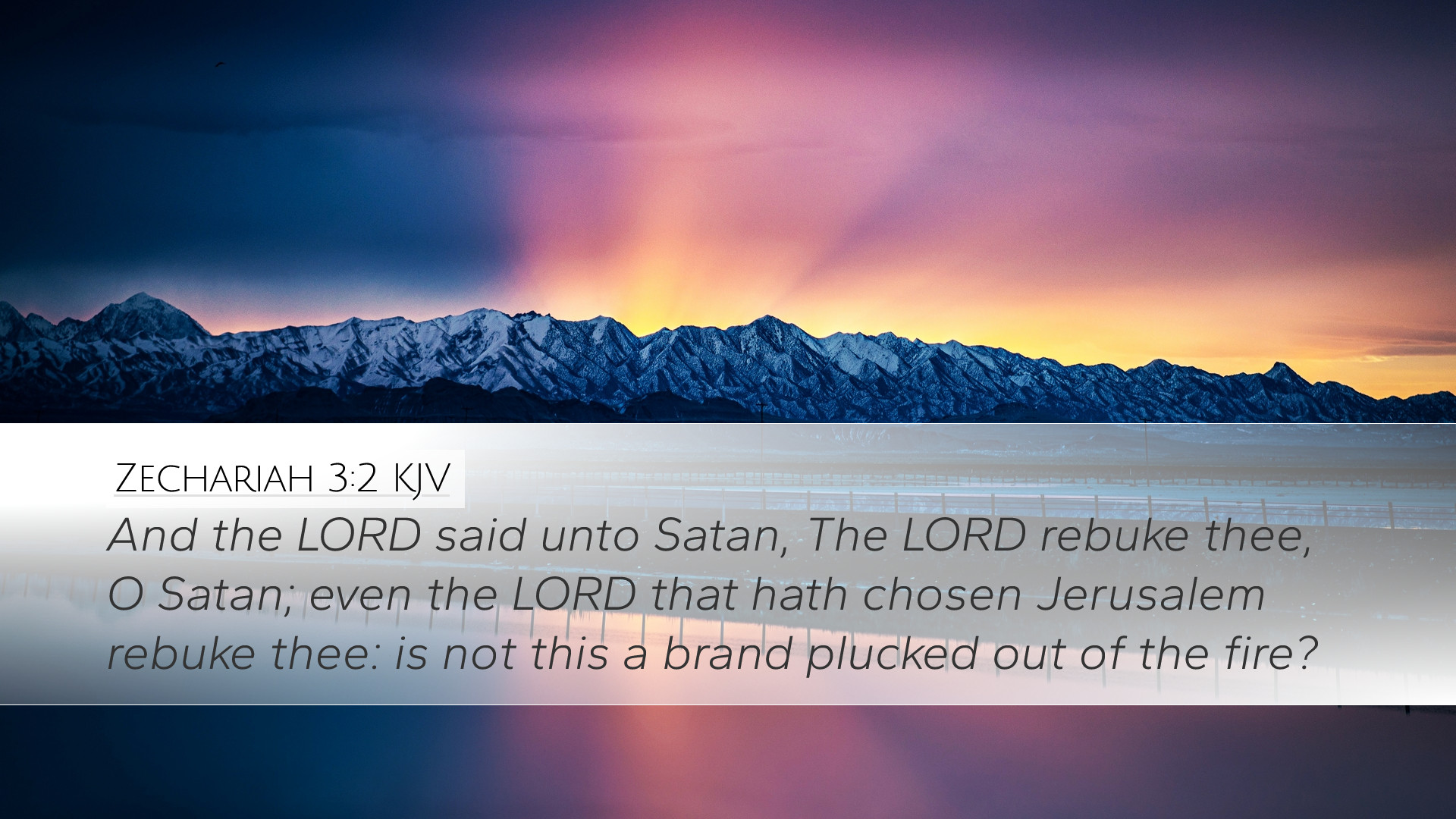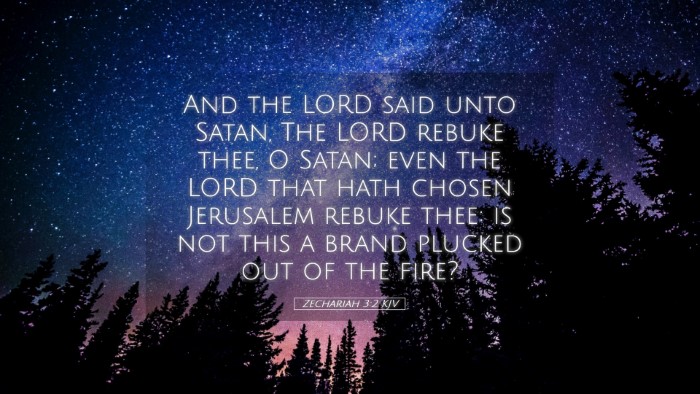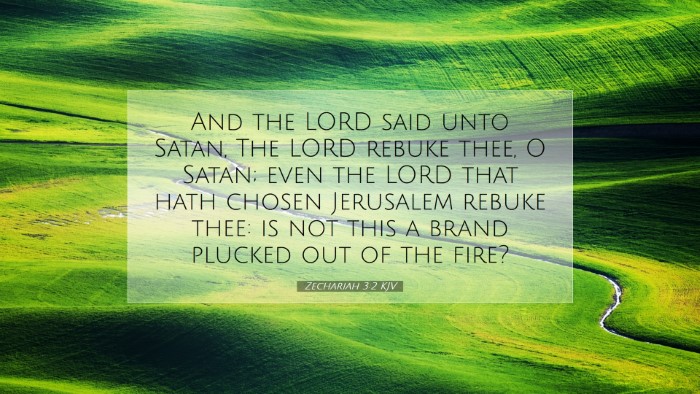Old Testament
Genesis Exodus Leviticus Numbers Deuteronomy Joshua Judges Ruth 1 Samuel 2 Samuel 1 Kings 2 Kings 1 Chronicles 2 Chronicles Ezra Nehemiah Esther Job Psalms Proverbs Ecclesiastes Song of Solomon Isaiah Jeremiah Lamentations Ezekiel Daniel Hosea Joel Amos Obadiah Jonah Micah Nahum Habakkuk Zephaniah Haggai Zechariah MalachiZechariah 3:2
Zechariah 3:2 KJV
And the LORD said unto Satan, The LORD rebuke thee, O Satan; even the LORD that hath chosen Jerusalem rebuke thee: is not this a brand plucked out of the fire?
Zechariah 3:2 Bible Commentary
Commentary on Zechariah 3:2
Verse: "And the Lord said unto Satan, The Lord rebuke thee, O Satan; even the Lord that hath chosen Jerusalem rebuke thee: is not this a brand plucked out of the fire?" (Zechariah 3:2, KJV)
Introduction
The verse in question is deeply significant, reflecting a scene of profound spiritual conflict and God's intervening grace. Zechariah, during a time of restoration for Israel, presents a vision that encapsulates themes of judgment, mercy, and divine choice. This commentary draws from the insights of renowned public domain commentators, including Matthew Henry, Albert Barnes, and Adam Clarke, to unpack its rich theological implications.
Context of Zechariah's Vision
Zechariah was a contemporary of Haggai, prophesying to the returned exiles who were rebuilding Jerusalem and its temple after the Babylonian captivity. This particular passage within Zechariah's visions carries forth the broader themes of Israel's restoration and God's commitment to His people.
Spiritual Accusation
The introduction of Satan in this verse signifies the intent to accuse. Matthew Henry emphasizes that Satan represents the accuser of the brethren, suggesting that his role is to point out the failings and shortcomings of Israel. This theme resonates throughout scripture, where accusations against God’s people serve as a reminder of their vulnerabilities.
The Lord's Rebuke
The phrase "The Lord rebuke thee" shows a divine authority stepping in to silencing the accuser. Albert Barnes elaborates that this response reflects God’s sovereign power over the adversarial forces that challenge His chosen ones. It is an assertion of God's protective nature over those He has set apart.
God's Chosen People
The term "chosen Jerusalem" underlines an intimate relationship between God and His people. Adam Clarke notes that the choice of Jerusalem signifies God's commitment to redeem His people, despite their past failures. This highlights the grace of God toward a nation that has often fallen short.
The Image of a 'Brand Plucked from the Fire'
The imagery presented in this verse conveys urgency and rescue. A "brand plucked out of the fire" illustrates God's mercy in saving what is perishing. Matthew Henry points out that this analogy serves as a powerful reminder that, even when we are in danger due to our own actions, God can and does intervene to save us.
Theological Implications
- Divine Intervention: The intervention of the Lord against Satan portrays the broader theme of God's active involvement in human history.
- Affirmation of Grace: The passage reinforces the principle of grace, showing that redemption is always possible despite humanity's failings.
- Assurance for Believers: Believers can draw assurance from this verse, knowing that God is their defense against condemnation.
Application for Today
This verse serves as a powerful reminder for contemporary believers and theologians. It encapsulates the reality of spiritual warfare, the nature of God's grace, and the assurance provided for believers through their relationship with the Lord.
For Pastors and Leaders
Pastors can use this passage to teach about God's redemptive work and the power of His rebuke in the lives of individuals who struggle with guilt and shame. The imagery could be leveraged to illustrate God's relentless pursuit of His chosen, encouraging congregations to embrace the grace that God extends.
For Students and Scholars
Students and scholars may explore the historical and theological contexts of Zechariah's vision, examining the implications of spiritual accusation and divine election. The verse provides an opportunity to engage with themes of sanctification and justification within broader soteriological discussions.
Conclusion
Zechariah 3:2 emerges as a rich source of theological insight, affirming God's unwavering commitment to His people, His authority over the accuser, and His power to redeem. This commentary, drawing from the insights of respected biblical scholars, invites reflection on the grace afforded to believers and the assurance found in God's redemptive plan.
May we always remember that, like the brand pulled from the fire, we have been saved not by our own works but by His grace and mercy.


